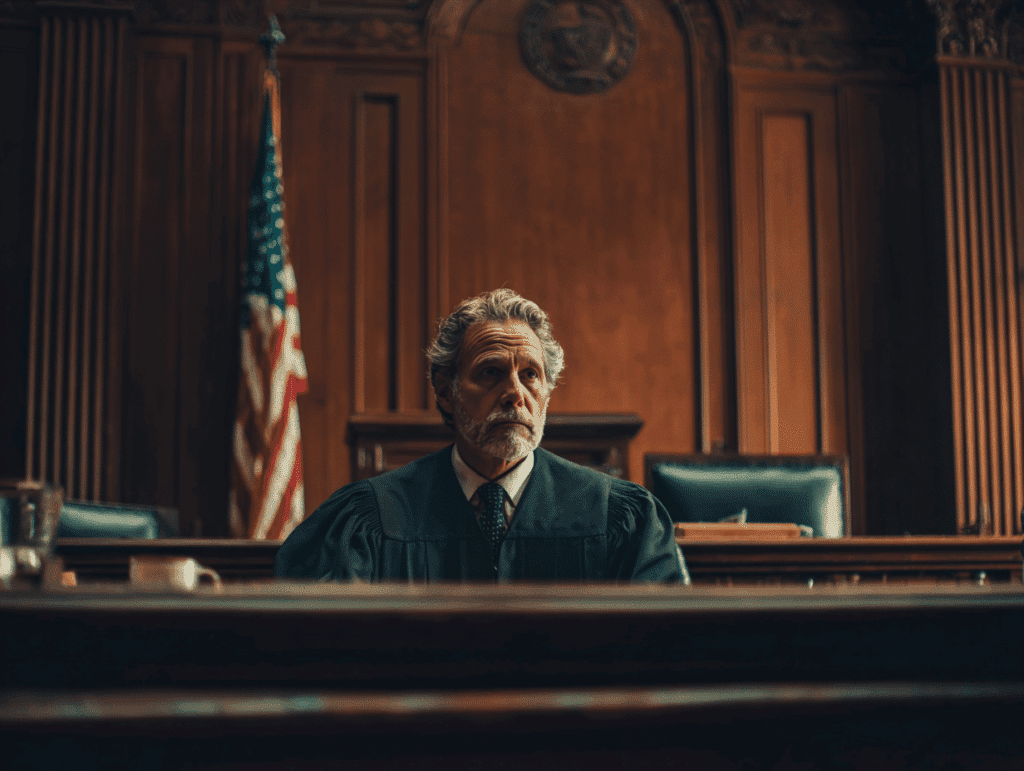Usually, if a court of appeals doesn’t deny the rehearing outright, they make some small change that doesn’t change the actual winner of the case. But sometimes, the judges are convinced they got it wrong the first time. They vacate their original judgment and the loser becomes the winner.
That happened recently in City of Houston v. Gonzales, 682 S.W.3d 921 (Tex.App—Houston [14th Dist.] January 18, 2024) which was handed on rehearing by Wyly & Cook partner Kelly E. Cook.
Let's Go Beyond, to Bring You Back
Let's get you the compensation you're entitled to. Get a FREE Consultation today.
Let's Go Beyond, to Bring You Back
You deserve the compensation you’re entitled to, call for your FREE Case Review today.
The Crash
The case arose from a crash in January 2016. A “probationary peace officer” (that is, a rookie cop) was driving a police cruiser with his training officer when they received a call for assistance with a suspicious vehicle. The officers started heading to the location of the call but didn’t activate any lights or sirens. While they were on the Beltway 8 feeder road, another vehicle merged in front of them. In response, the rookie officer swerved into a nearby driveway, where Mr. Gonzales was in his vehicle waiting to exit the driveway onto the feeder road. The cruiser struck Mr. Gonzales, and Mr. Gonzales sustained injuries in the crash.
Immunity
During the trial, the City of Houston argued that it was protected from any claims made by Mr. Gonzales due to governmental immunity. In the United States, governments are generally immune from lawsuits for injuries, but they can allow lawsuits against them by passing specific laws. Texas has such a law that allows lawsuits against the government, including cities like Houston, for injuries caused by government agents’ negligence in car accidents. However, there are limits to this law. One key limit is that the government remains immune from lawsuits if the agents were responding to an emergency call or situation when the accident happened.
In this case, the City claimed that its police officers were responding to an emergency call or situation, and therefore, they were protected from being sued.
The Trial
At trial, the parties waived a jury. That means the judge heard all the facts and made a decision on both the facts (what happened) and what law says should happen based on those facts (what the outcome will be).
Here the judge, Hon. Kyle Carter of the 125th Judicial District Court, found that the officers were not responding to an emergency call or situation, that they negligently caused the crash, and that Mr. Gonzales’s injuries entitled him to a $250,000.00* recovery.
* One of the limitations in the law that allows people to sue the government is a limit on how much the injured person can recover. The limit for cities like Houston is $250,000.00. So, Mr. Gonzales was awarded the maximum amount he could recover.
The Appeal
The City refused to accept responsibility for injuring Mr. Gonzales and appealed the case to the 14th District Court of Appeals. There a three-judge panel would review the decisions of the trial judge for error.
The Court of Appeals decided that when the vehicle merged in front of the cops, the rookie was faced with unforeseen circumstances requiring immediate action, and that constituted an emergency situation. Because the City is immune in that circumstances (and none of the exceptions applied) the Court of Appeals reversed the trial court and ruled that Mr. Gonzales receive nothing for his injuries.
Rehearing

The motion argued that the Court of Appeals hadn’t considered all the evidence in the record and hadn’t given proper deference to the decisions of the trial judge. A court of appeals doesn’t get to see witnesses testifying, they just look at the record of what witnesses said. So, the court of appeals is supposed to give deference to the fact finder (usually a jury, here the trial judge) on what evidence was believed or not because the factfinder was in the courtroom with the witnesses and has the better view of their credibility. Here, the investigating officer (not one of those involved in the crash, but from the same department) didn’t identify the crash as being the result of an emergency. And the rookie cop had said “n/a” when asked on a questionnaire whether he was responding to an emergency situation. Additionally, rehearing was sought on the grounds that a car cutting off a government vehicle isn’t an “emergency situation” as that term is used in the law.
After a response from the City, the Court of Appeals granted the motion for rehearing, withdrew its first opinion, vacated its judgment and issued a new judgment—one finding that the City was liable to Mr. Gonzales for his injuries. The Court found that the trial judge could have credited the investigating officer’s crash report notation that the officers weren’t responding to an emergency when the crash occurred. The Court also acknowledged they were “persuaded by Gonzales’s arguments on rehearing” that the officer’s response to the vehicle merging in front of them was not a response to an emergency situation because the police cruiser was not “operating as an authorized emergency vehicle” at the time of the crash. City of Houston v. Gonzales, 682 S.W.3d 921, 928 (Tex. App.—Houston [14th Dist.] 2024, no pet.).
While Mr. Gonzales was allowed to recover, the Court of Appeals did find that the trial judge had allowed a procedural error to occur. Briefly, when Mr. Gonzales sued, the law he sued under limited his recovery to $100,000. But that rule changed shortly before trial. The judge allowed Gonzales to take advantage of the increased limit of $250,000. The Court of Appeals determined that shouldn’t have been allowed. So, the judgment against the City was reduced to $100,000.
Let's Go Beyond, to Bring You Back
Let's get you the compensation you're entitled to. Get a FREE Consultation today.
Let's Go Beyond, to Bring You Back
You deserve the compensation you’re entitled to, call for your FREE Case Review today.
So Why Is This Case Important?
This decision is important for Texas law for two main reasons. It establishes clearly that an investigating officer’s notation that a crash was not caused by an emergency is some evidence that the emergency exception doesn’t apply. Government lawyers often raise this “emergency exception” defense after the fact to try and defeat claims against the government. But now, the government won’t be able to invent this justification after the fact. If the emergency isn’t one the investigating officer is aware of or told about by the government actors involved in the crash, then a jury will get to decide whether the “emergency” defense is really applicable.
Second, a government can’t rely on ordinary, if unforeseen, traffic events to constitute an “emergency” shrouding the government with immunity. Just like any other driver, a police officer or other government driver will be able to argue he should not be held negligent for reacting to an unforeseen circumstance. And a jury will decide whether the action was reasonable under the circumstances. But a government driver won’t be shielded by total immunity simply because he was surprised by an unexpected merge or other unforseen circumstance on the road.
More on Rehearings
The Office of Court Administration keep detailed statistics about the numbers of cases handled by Texas Courts. Some of these statistics shed light on how remarkable a grant of rehearing by a Court of Appeals is.
In the fiscal year ending August 31, 2023, the Court of Appeal disposed of 5,469 cases. Of those, around 2,178 resulted in an affirmation or reversal by the court of appeal. The rest were resolved by dismissal of the appeal or otherwise removed the courts’ dockets. During that same year only 35 rehearings were granted in the entire state of Texas. That is, only about 1.6% of decisions resulted in a rehearing being granted.
By comparison, the Texas Supreme Court received 888 petitions for review in that year. It granted just 90. Of petitions for review the Supreme Court resolved in fiscal year 2023, it affirmed the court of appeals around 16.9% of the time. Read together, a litigant unhappy about an outcome at the court of appeals has only a roughly 8.5% chance to get a more favorable outcome from the Supreme Court. But that is still five times more likely than a granted motion for rehearing!


